I have been playing my new banjo for a while now, and it seems to me that it would be easier to play if the strings were not quite so high off of the finger board up by the nut. It is a bit clumsy to fret them from 1/8" above the board. In the past, I have found that I favored having the strings high over the fretless neck, but in this case, I thought that I would have a better time if they were a tad lower. I won't know until I try it.
It is too cold in the shop lately (54° F) to do my next project, which is to make the back for the banjo, but I thought I could brave it out long enough to cut the nut slots a bit deeper. Down to the shop with the banjo.

Ready for Surgery
I used my caliper to measure the height of the 1st string above the finger board. I measured it from the board to the bottom of the string.

Measuring the String Height
The height came in right at 1/8 inch, which was what I had designed.
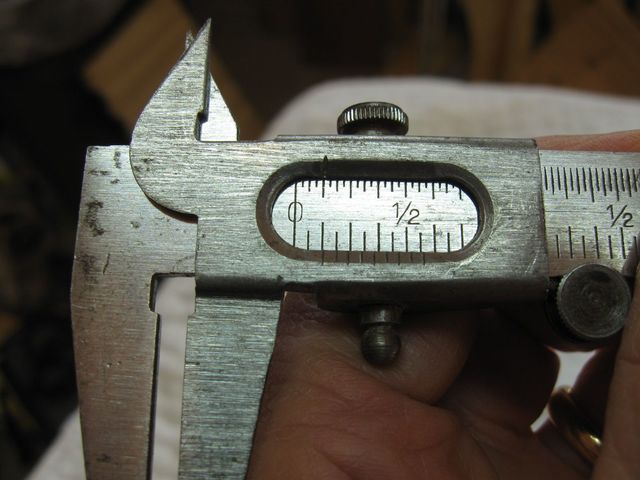
The String Sits 1/8" Above the Board
For grins, I also measured the height of the 4th string from the board to the bottom of the string.
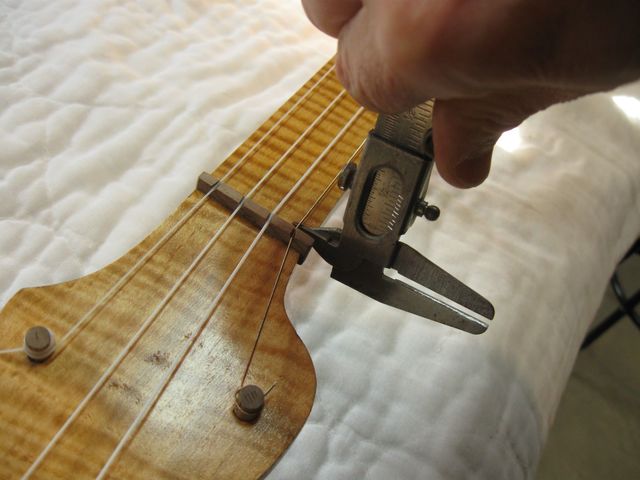
Measuring the Height of the 4th String
Its the same, 1/8". OK, maybe it is 1/128th higher than that, but who's counting?

Exactly (Almost) 1/8" High
The strings on a steel strung bluegrass banjo sit at a height of 1/16" at the nut. I don't want to go down that low because these strings are bigger and floppier than steel strings. I think that I want them a bit higher than that. It is an arbitrary choice, so what I need to do is to set them a bit lower and try it out to see if I like it. I decided to set the strings 3/32" above the finger board.
I loosened all of the strings and took the nut out. You can see where I marked it last time for the 1/8" height.

The Marks on the Nut
The bottom line is where the finger board sits. What I need to do is make a new mark at 3/32" up from the fret board line and then cut the nut slots down to that line.
Doing this involves cutting the string slots in the nut deeper. That is a one-way trip. If I mess it up, then the nut is ruined.

OH NOOOOO!
WHAT IF I MESS IT UP? THEN WHAT?
Well.... I have these.....

Potential Nut Blanks
I think that there are enough nut blanks to cover my heinie through a lot of experiments. If I completely mess this up I will start over and make a new nut blank.
So I got on with it. I measured the 3/32" on the nut and drew a new line.

Measuring the Nut
I clamped it into my portable vise.

Clamped in the Vise
I used my shop knife to cut the slots deeper while preserving the angles of the slots.
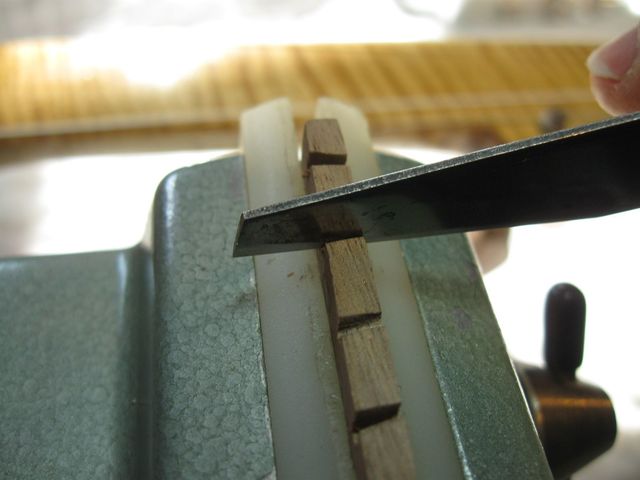
Cutting the Slots Deeper
After cutting a slot, I put the nut back into the neck and tried the string in it to see how high it really was above the finger board.
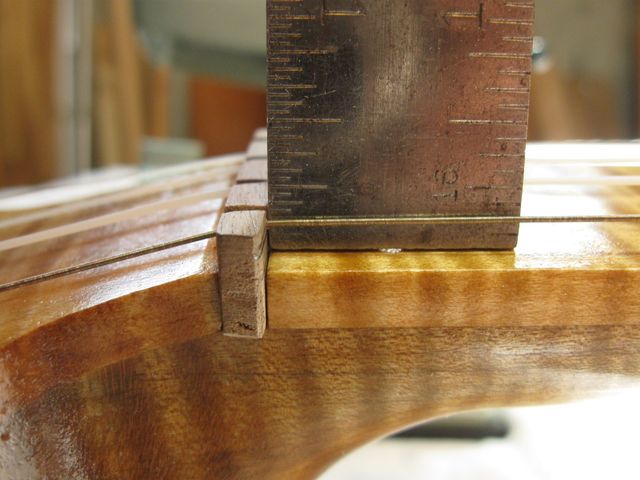
Measuring the Height with a Ruler
I kept cutting the slots until all of them were down to the new line. Here is what it looks like.

The New Slots
That is seriously ugly with all that extra wood sitting there on top of the slots. I used my sanding block to take off some of the extra wood.
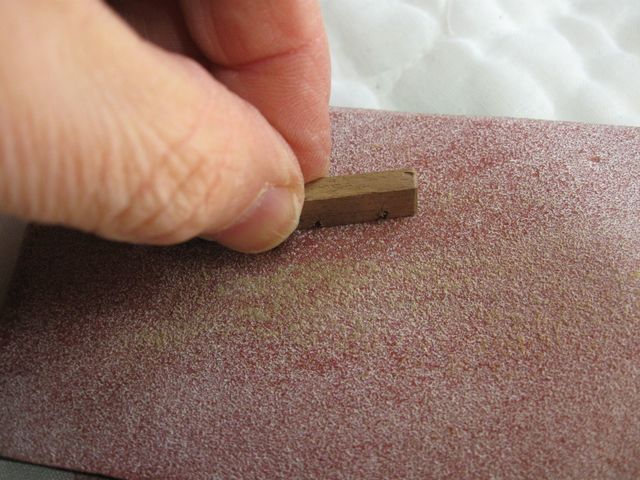
Sanding Down the Nut
Here it is. That looks better.

Done
That is all I did to the nut. I put the strings back onto the banjo and tuned it up to pitch. The strings stretched out a bit since I had let them go slack, but it wasn't too bad this time. After a few minutes they were holding pitch just fine.
Now I need to go play it for a few more weeks to see if I like it better this way.
